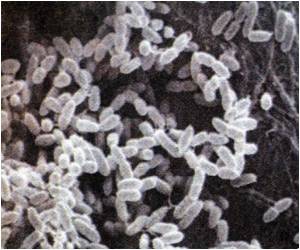Scientists from Inserm and Inra have designed modified bacteria to produce Elafin, a human protein which is known for its anti-inflammatory proprieties.

Their breakthrough has provided new hope for individuals suffering from chronic inflammatory diseases, known as IBD, (specifically Crohn's disease and ulcerative colitis).
They believe that administering this protein directly into the intestine could protect against inflammatory attacks and restore intestinal equilibrium and its functions.
During inflammatory outbreaks, IBDs are chiefly characterised by abdominal pain, frequent diarrhoea (sometimes with bleeding) or even disorders in the anal area (fissure, abscesses).
Different avenues are being explored to explain the origin of IBDs, including the role of genetic or environmental factors. The intestinal flora seems to play an important role in the outbreak of inflammation, although little is known about it. Identifying an effective treatment is also at the heart of the investigations.
Although Elafin is found naturally in the intestine to protect it against attacks, it disappears in patients suffering from IBDs.
Advertisement
When administered orally to mice, the human Elafin-producing bacteria are found a few hours later on the surface of the intestine where they deliver the anti-inflammatory protein. In different mice models of chronic or acute intestinal inflammation, oral treatment using these Elafin-producing bacteria provided significant protection of the intestine and decreased inflammatory symptoms.
Advertisement
These results may result in a clinical application where Elafin would be administered to patients suffering from IBDs using beneficial bacteria (probiotic), which are already commonly found in food (yoghurt, cheese), thus protecting the patients from inflammatory symptoms.
According to the researchers "This kind of secure treatment could even be used over the long-term, to treat inflammatory diseases."
The results of this research were published in the Science Translational Medicine review.
Source-ANI











